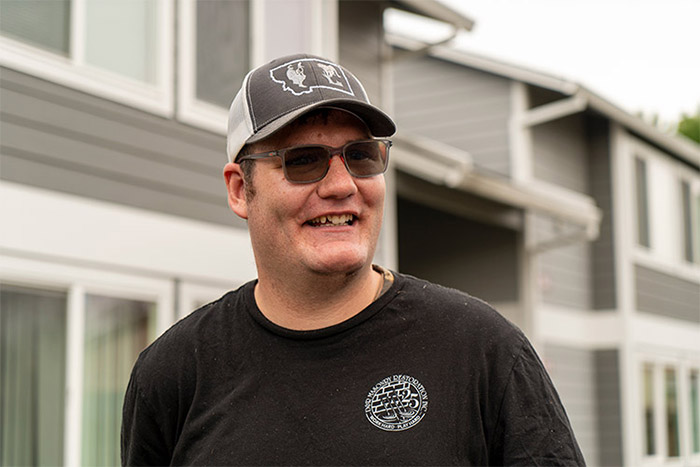During Developmental Disabilities Awareness Month, we celebrate how far we’ve come in supporting inclusion, representation and equality for people with intellectual and developmental disabilities (I/DD). At the same time, we must shine a light on and work to resolve the inequities that remain.
People with disabilities are making a splash by starting hugely successful businesses, setting records, competing, accomplishing goals and sharing their stories. They’re proving they’re great friends, athletes, neighbors and leaders and we’re all learning that we’re more alike than different.
In the past few years:
- Amy Bockerstette showed us “I got this” at the Phoenix Open.
- Grace Strobel became a cover girl for a national cosmetics brand.
- Chris Nikic became an Ironman and received the Jimmy V Award for Perseverance at the 2021 ESPY Awards.
- Sofía Jirau was named a Victoria’s Secret model.
- Micah Fowler represented in Speechless.
- John Cronin spreads happiness with the world’s largest sock store.
- RJ Mitte broke barriers in Breaking Bad.
- And the list goes on.
For every big story like these, there are hundreds, if not thousands, of small stories. Griffin discovered his calling. Lauren graduated from college. The Van Arsdale twins moved into a home of their own.
As exciting as progress has been, there’s still work to be done. Major gaps in opportunity remain, especially in the day-to-day, not-so-glamorous world of daily living. That’s why we’re highlighting the inconsistencies in our world that prevent many with developmental disabilities from living up to their potential. The AbleLight report, Facing Inequities Head On: Addressing challenges of people with intellectual and developmental disabilities finds:
Equal access to health care is elusive
Did you know that people with I/DD are denied life-saving services at a much higher rate than the general population? They experience limited access to intensive care beds, ventilators, and organ transplants, often due to misconceptions about their “value of life” and ability to participate in and comply with follow-up care.
Quality housing remains out of reach
Market conditions have driven housing costs beyond the reach of most with I/DD. With limited options, many live in care facilities, group homes, institutions and with parents over 60 years of age. This leaves them lonely and isolated in housing that is segregated from neighbors and community.
Tenuous economic resources limit community engagement
The economic inequities faced by people with I/DD negatively impact all aspects of their life. They’re underemployed and more likely to live in poverty, contributing to poorer mental health within the I/DD population. They’re also excluded from social, community and recreation activities at a much greater rate than people without disabilities.
At AbleLight, Developmental Disabilities Awareness Month is about helping the world recognize that people with disabilities have many gifts to share. It’s also about ensuring they have the specialized supports they need to shine their brightest.

